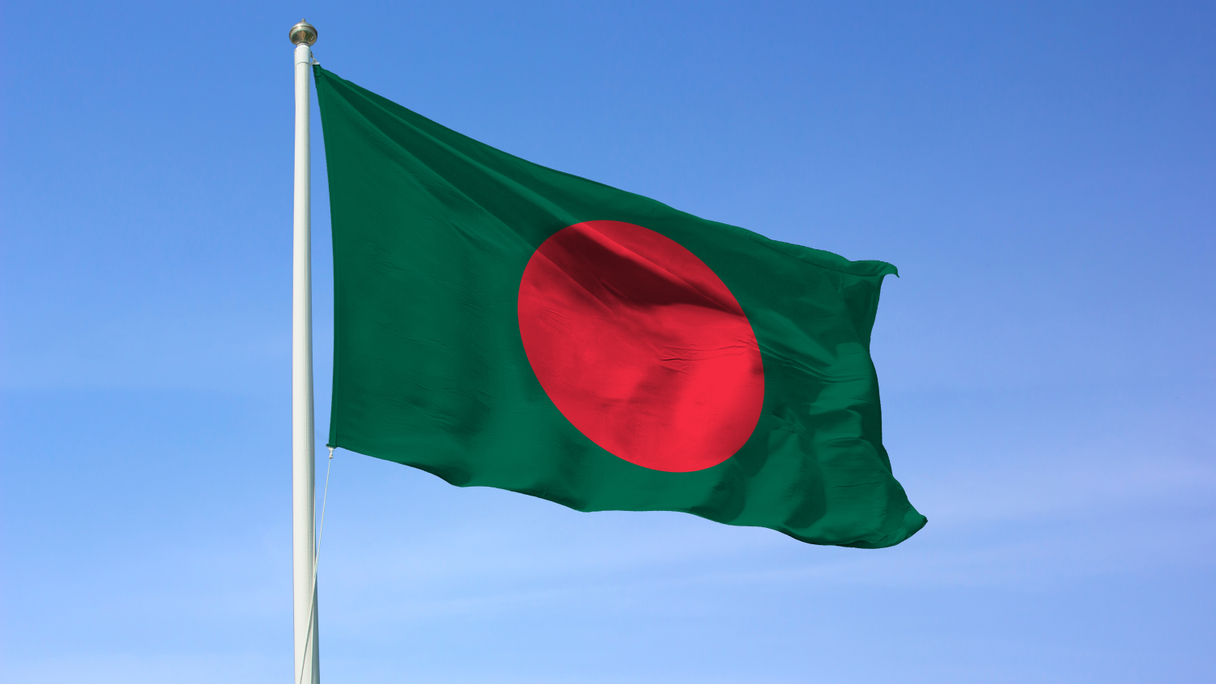Amid global financial uncertainty and a severe dollar dearth, Bangladesh has proposed a contractionary budget in the parliament for the fiscal year 2024-25, starting July 1, 2024.
It is also expecting a high dependence on borrowing from the banking sector and to be reliant on foreign debts for development works.
Bangladesh’s finance minister, Abul Hassan Mahmood Ali, placed the budget on June 6, however, it has been widely criticised for lacking effective plans to cut down inflation which has remained close to 10% for over a year, causing severe hardship for lower-middle-income groups of people, as the situation worsened since war broke out in Ukraine.
The BDT7.97 trillion ($68 billion) budget was agreed only a few weeks after the local currency saw a sizable depreciation against the US Dollar after a “crawling peg” system has been introduced to determine the exchange rate. On May 8, the mid rate was set at BDT117 per US dollar. The peg was set-up was in line with the advice of International Monetary Fund (IMF), to help lessen freefalling of foreign currency reserve.
Presently Bangladesh has only $18.6 billion of foreign currency reserves, according to the IMF’s calculation method. However, the net forex reserve now stands slightly over $13 billion, hardly enough to cover three months’ of imports.
The paltry forex reserve forced the government to significantly cut imports during the last couple of years which adversely affected industrial outputs, and also pushed up inflation.
Growth target
For the next fiscal year, the budget has proposed a 6.75% fiscal growth, which economists and analysts predict is not achievable. In the outgoing fiscal year the government has estimated 5.8% growth at the year end, while its initial growth target was 7.5%.
The government has also set a target to lower the rate of inflation to 6.5% in the next fiscal year from present rate of nearly 10%. To materialise the target, the government has planned to cut import duties on major essential commodities. The finance minister, a day after presenting the budget to parliament, at a post-budget press briefing, however said, people will have to wait until next December to get the rate of inflation down to a “tolerable limit”.
The economists, however, ruled out the possibility of lessening inflation soon as they think a measure like duty cut on commodities alone would not help to lower inflation. Moreover, they believe the government, in the budget, has announced to adjust fuel oil prices four times a year to lessen subsidy spending, fuel prices will go further up in the coming days leading to the further escalation of inflation. A rise in fuel prices always enhances pushes up prices of other commodities and services.
The budget proposed by the finance minister contains a deficit of BDT2.56 trillion which is 4.6% of the country’s gross domestic product (GDP). The finance minister has targeted to fund the deficit by borrowing from domestic and international sources. Of the total, some BDT1.61 trillion will be borrowed from domestic sources of which BDT1.375 trillion will come from the banking sector.
Non-performing loans
Already Bangladesh’s banking sector is plagued with non-performing loans worth BDT1.82 trillion, the highest in the history of Bangladesh. Also, billions of taka are stuck in the legal system as banks file cases against loan defaulters.
In another sign of trouble, five banks with weak financial health are set to merge with five relatively strong banks to avoid closure. Under the potential merger plans, Exim Bank would take on Padma Bank; Sonali Bank would acquire Bangladesh Development Bank; Bangladesh Krishi Bank would take on Rajshahi Krishi Unnayan Bank; National Bank would acquire United Commercial Bank; while City Bank is set to acquire BASIC Bank.
The government has set a target to borrow BDT970 billion in the next fiscal year from abroad to support development works. The target is considered very high with external debt already crossing $100 billion in March. Economists’ fear that foreign direct investment will also fall in the new fiscal year as the war in Ukraine continues, the global economy struggles, and Bangladesh is failing to allow the repatriation of profit by foreign investors due to its severe dollar dearth.
Businesses believe that excessive borrowing by the government will dry-up resources, thus the private sector may not be able to expand their businesses. Employment generation will also be hindered severely, with the rate of unemployment increasing.
“The excessive borrowing by the government from the banking sector hinders the credit flow to the private sector,” Mahbubul Alam, president, Federation of Bangladesh Chambers of Commerce and Industry (FBCCI), said in a reaction.
Anwar-Ul-Alam Chowdhury, president of Bangladesh Chamber of Industries (BCI), said there is no directive in the proposed budget on how to help keep local industry, especially when considering the cost of doing business is going up in the country.
The Centre for Policy Dialogue (CPD), country’s leading think tank, in the budget reaction said the government did not consider the impact of the ongoing macroeconomic policy adjustments in the proposed budget.
“The inflation projection for FY 2025 certainly appears to be overambitious,” the CPD said.
Dr. Salehuddin Ahmed, a former governor of Bangladesh’s central bank said, the proposed budget will fail to meet various targets as it doesn’t have enough “bold steps”.
¬ Haymarket Media Limited. All rights reserved.

